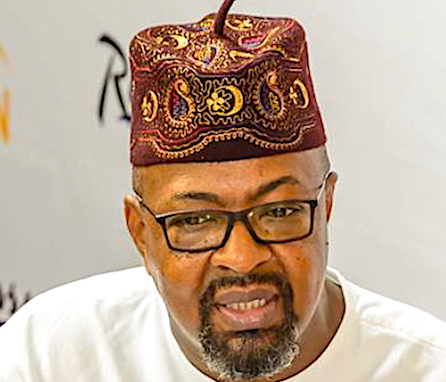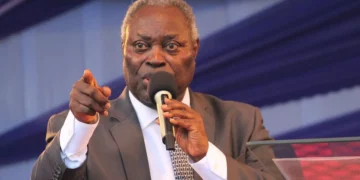Driving Nigeria’s Soft Power
“Asake! Kaycee! Tems!! Davido!!… I wake up to “Basquiat” in London, then thereafter get drawn into the matchless magic of Kaycee’s “Ojapiano” as I step into the airport in Miami. Imagine, Tems’ unique melody serenades me as she takes me “Higher” on the car stereo in Jo’burg. What about Davido? He just seems to be both available and “Unavailable” everywhere!!!”
That’s how a friend – who happens to be a globetrotter on the job – confronted me recently, before going on to ask: “Burna Boy has been filling massive concert stadiums from New York to many cities in Europe; same with Big Wiz, Davido, and Olamide’s YBNL boys… But why are many of these big events not happening in the origin of Arobeats, Naija? A considerable number of people ought to be coming down here – to Lagos, Port Harcourt or Abuja – to experience Afrobeats at its roots. What’s happening? Why are you guys not making this happen. I want to come home to watch these mega-shows, with an audience from across the globe!”
In that encounter with my friend, he had skinned a very critical issue of policy to its core – the need to create the strategic and physical infrastructure that will harness Nigeria’s unique cultural and artistic assets, expressed through diverse channels such as fashion, food, music, creative crafts and film, and make them a strong part of its reality, whether in terms of its appeal as a destination of choice for tourists or even in its potential to trigger an economic renaissance. I couldn’t agree more that while efforts are continually being made, there is need for a greater resource base for action, alongside a more structured response to, and coordination of Nigeria’s tourism assets – particularly as a programme of national economic regeneration.
Tourism has the potential of broadening Nigeria’s huge soft power, which has an upward trajectory, as witnessed in the global reach of its artistic and cultural products, and identity.
Or is it the immense crossover appeal of Tiwa Savage, Flavour Nabania, Rema, P-Square, Yemi Alade, Patoranking or Olamide and his YBNL associates? Some of these artists have taken Nigerian street culture into the affluent spaces of Western high culture, and beyond. Consequently, our fashion and culinary industries have become the darlings of many across the African continent and the wider world. More so, increased religious tourism in Nigeria, involving visits to highly reputed places of worship and sacred locations, is a testament to the huge and deepening appeal of Nigeria to the outside world.
Stimulating a Massive Economic Field
Before the outset of the COVID-19 pandemic in 2019, the hospitality and events sub-sector of tourism is noted to have had a cumulative revenue of about N1.2 trillion annually, with the travel and related industries accounting for about four million direct jobs across some 10,000 MSMEs.
The related advertising, radio and television industry is noted as yielding turnovers in excess of N500 billion per year, from more than 10,000 businesses, engaging more than 500,000 people directly. While the writing, printing and publishing industry has witnessed annual revenues of about N1 trillion from 3,000 businesses and 15,000 active practitioners. For comedy, dance and the performing arts, this sub-sector earned about N17 billion in 2018, due to the efforts of over 6,000 companies and practitioners.
Destination Marketing: Beyond Propaganda
One of the reasons that tourism in Nigeria does not seem to be making as much impact is due to its narrow confinement as a limited department of government, when it can become its own policy-making engine room that coordinates a “whole-of-government” approach, in which all levels of government are made to share a vision of the direction and goals of tourism policy-making and implementation. This is a federal cabinet role that would create a vital link between the central and lower levels of government, despite differing mandates and levels of autonomy. It is a role that serves as a policy nexus between government, industry and the civil society.
Tourism is essentially about economic development; it is a complex mix requiring great understanding and resources for policy-making at the various crosscutting levels, which would stimulate the development of the country’s attractions, hospitality and entertainment sectors, with direct impacts on aviation, local transportation, etc.
A newer Ministry of Tourism is one that understands the vast potentials of the sector and how these can be harnessed for national development. It is one that operates in the understanding of the crucial nature of domestic tourism, which is six times larger than international tourism, and accounts for more than 70% of tourism markets. Hence the necessity of the greater development of inbound tourism. Also, it sees the re-making of domestic tourism as the first step towards growing a sustainable tourism and hospitality industry across the country.
Also, the Ministry is one whose interventions offer major prospects for the advancement of our rural communities, where a lot of our tourist sites are located. In Nigeria, with an estimated population of over 200 million people, having 222 million active internet subscriptions and a teledensity of almost 116%, we have a readymade and vast domestic market for tourism.
Furthermore, as a significant dimension of this, there is the need to establish a Tourism Satellite Account (TSA)/Tourism Information Management System that would capture tourism related data for coordinated nationwide planning and development.
Importantly, the Ministry will be charged with mapping the agenda for the creation of a functional Tourism Development Fund to drive the improvement of tourist sites, assets and marketing, while reviewing the fiscal frameworks affecting the growth of the industry across all tiers of government.
The mandate of a new federal tourism ministry would necessitate financial engineering by creating private sector entry points to managing and enhancing the value of disused federal, state and local government physical assets across the country, which could be repurposed for destination and experiential benefits to tourists.
In addition, with the essence of the Ministry being the growing of the business of tourism, it would enable the creation of business incubators to drive community based tourism (CBT), whilst establishing Enterprise Development Centres for women and youth in tourism enterprises, to produce and export products in an inclusive manner, etc.
From the foregoing, it is quite apparent that what Nigeria needs is a growth structure to market the widening range of its potential as a destination of choice for many across the world, which is nothing short of a full-fledged Ministry of Tourism, rather than a delimited appendage under a platform for propaganda.
– Coker is the DG Of Nigerian Tourism Development Authority.





